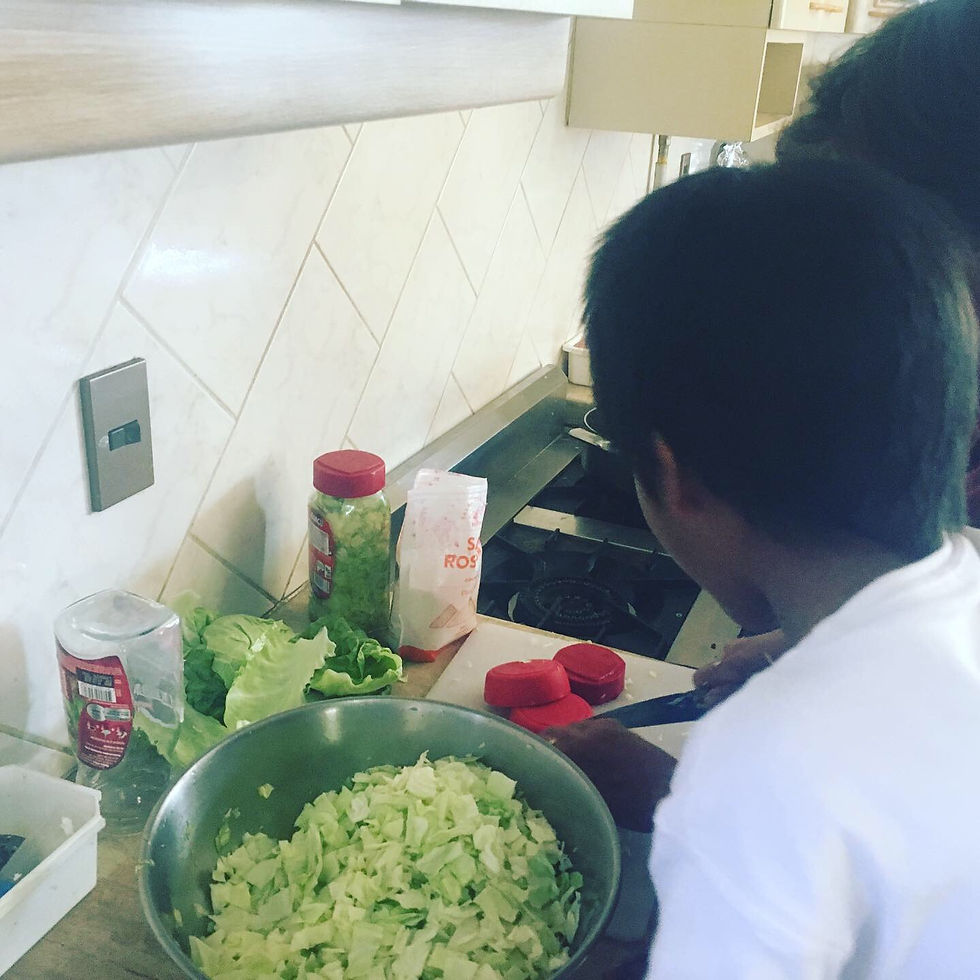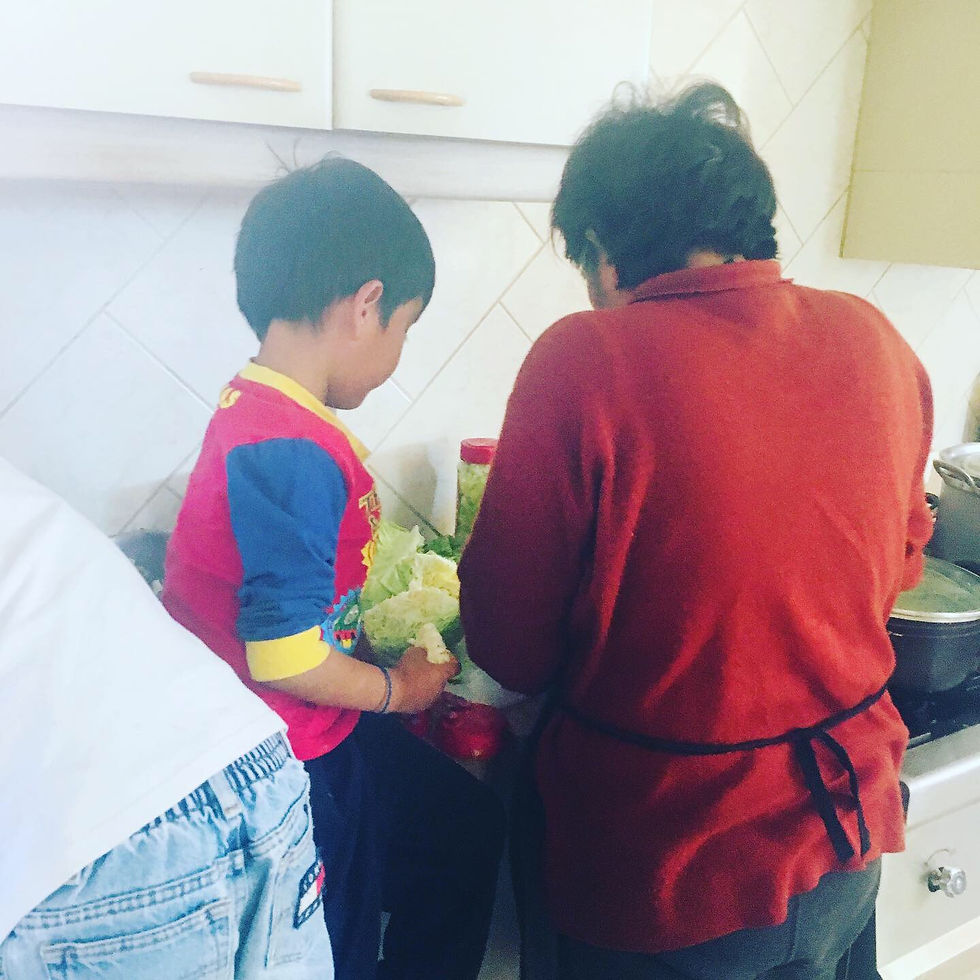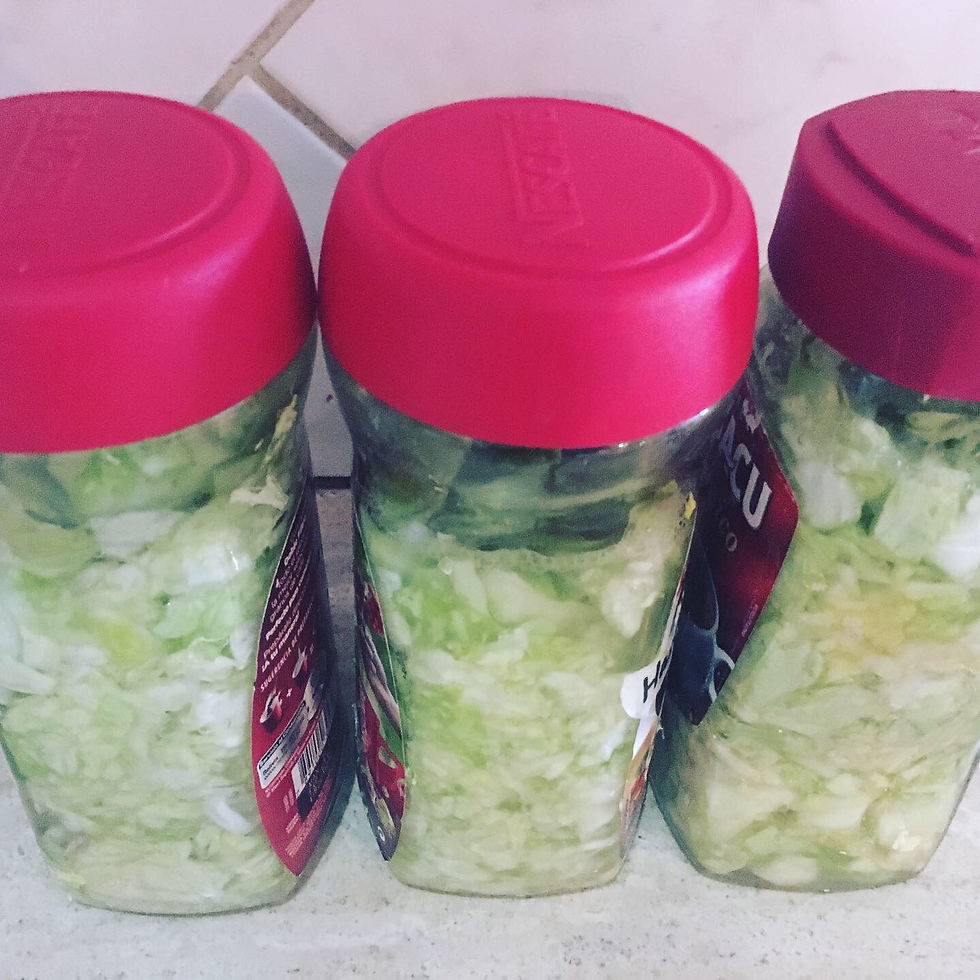Thriving Health in Bolivia
- Maria Boyuk FNTP

- Jun 21, 2019
- 4 min read
Updated: Mar 13, 2020

“It takes a lot of courage to release the familiar and seemingly secure, to embrace the new.”
Alan Cohen
On June 13th, I flew home to New York after a full two weeks in Cochabamba, Bolivia. Daniela Isabella and I traveled there to serve the community at Talita Cumi, a children’s home, as well as the local church and school at Augusta Viva de la Roca. My primary focus was to teach and train nutrition. It was a productive, challenging, humbling and enriching experience!
This was my third time on a mission trip to Cochabamba, but the first to have the focus to teach nutrition. My previous trips there equipped me to know the “food culture” and how I could prepare to make a positive impact when I returned. I want to share with you the journey of education and transformation at Talita Cumi.
During day two of our stay, I dove into the work and taught a foundational presentation on nutrition to the staff at Talita Cumi--”Nourishing our Family.” I shared about whole foods versus processed, how our food has changed through history and industrialization, and how that has impacted our societies’ (Bolivia’s and the United States’) health. After a time of discussion, I presented the staff with a food challenge to practice during that week. It included a focus to consume only natural, whole foods while eliminating sugar and highly processed oils such as vegetable and soy oil. We discussed the need for and the opportunity to practice a lifestyle change, to discover new habits and recipes, and to experience healing from the specific health concerns they expressed. This information was like a revelation to them! They were so thankful for me to share it. Many of them commented that these processed foods are new. For example, their grandmothers always cooked with butter and lard, and those who travel from the villages in the mountains of Cochabamba still use lard and fat from alpacas. Equipped with truth and a list of foods to focus on eating, they knew what they needed to do. The challenge was no longer in the lack of education or knowledge, but in embracing the new.
The following week I worked with the cooks at the home to tweak the menu. We were able to preserve the skeleton of the meals and swap out the processed oils for healthy fats, replace sugar with fruit or honey, and cut back on some of the portions of rice and potatoes. We had fun making RESTART cookies and ice cream. Special treats for everyone! I shared how to make bone broth and sauerkraut, which are therapeutic foods for digestion. All the while, I continued to provide education on food and our bodies as I met with the staff daily to teach them about hydration, digestion, sleep, blood sugar handling, and fatty acids.
After a week of the food challenge, I shared another presentation on lifestyle change—”How to Conquer the Craving.” We discussed how to use food for BOTH a tool and pleasure, and then how to successfully integrate knowledge, the desire to be healthy, and specific goals to sustainable lifestyle change. I was encouraged by the efforts the staff made, but humbled to know that it is easy to walk away from a new change and return to the comfort of old habits. I’m excited for the learning journey they will all experience, and confident that those that stick with it will be a testimony of the value of change. The directors of the home (former nurses from the U.S.) were very pleased with the changes and excited to continue them for the children.
So, here is the challenge we all face. Even though changes are implemented, they are not always comfortable for everyone to embrace. We may learn of the negative impact of some foods on our health, but still tend to turn to them for comfort and joy—momentary pleasure that seems to overshadow their consequences. The process of “embracing the new” is the same for me, for our community in Alfred, and for those in Bolivia. It is not easy. It takes courage. But the value found by those who embrace positive change far outweighs the cost.
Thank you to everyone who sent us to serve in Cochabamba! You encouraged us with your words and blessed us with financial support that covered all of our traveling expenses! As I served, I learned so much that enriched my return to Alfred. Undoubtedly, with your involvement, Bolivia has been touched and blessed by New York.
The children't first breakfast without sugar or bread: oatmeal w/ pureed banana!

A fun lunched prepared by the Cook: lentil burgers, mashed potatoes, avocado, hard boiled egg and tomatoes. She has been so excited to prepare healthier foods for the kids!

First breakfast with eggs...and cheese! The kids benefited from some quality protein and fat to fuel their day!

I taught the cook how to prepare fermented veggies and we got started with sauerkraut. She was excited to hear how this nutrient-dense and probiotic-rich food will support their digestive system. A couple of the boys were excited to join the project!









Comments